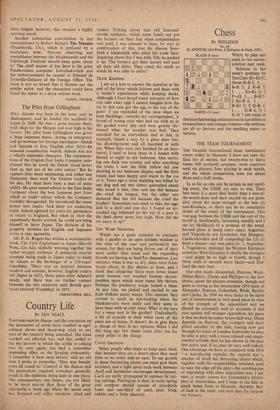The Pilot from Gillingham
Wax Amats was born in the same year as Shakespeare, and he landed (by accident) in Japan in 1600. He was a great success there, built ships for the Shogun and rose high in his favour. 'The pilot from Gillingham was given a large Japanese estate. Acting as interpreter and go-between for foreign merchants—Dutch and Spanish at first, English after 1613—he amassed considerable wealth. Adams was not a wholly estimable character. The representa- tives of the English East India Company com- plained that he loved the Dutch 'much better than us that are of his own nation.' But he appears little more unpleasing, and rather less dissipated, than most Far Eastern traders of his day. He must have been a man of some ability. He gave sound advice to the East India Company about the best Japanese port from which to trade—advice which the Company foolishly disregarded. He introduced the sweet potato into Japan. And there are endearing traits. Adams agitated for years for permission to return to England. But when in 1614 the opportunity finally arrived, he could not bring himself to leave Japan. The division of his property between his English and Japanese wives is also agreeable.
Mr. P. G. Rogers has written a workmanlike book, The First Englishman in Japan (iarvill Press, 12z. 6d.), skilfully weaving together the rather scrappy evidence. A postscript records attempts being made in Japan today to build up Adams as the harbinger . of a 350-years' friendship. There was an interval between swallow and summer, however. English traders left Japan in 1623, three years after Adams's death; and there was no further contact between the two countries until British gun- boats restored 'friendship' in 1855.
CHRISTOPHER HILL


































 Previous page
Previous page